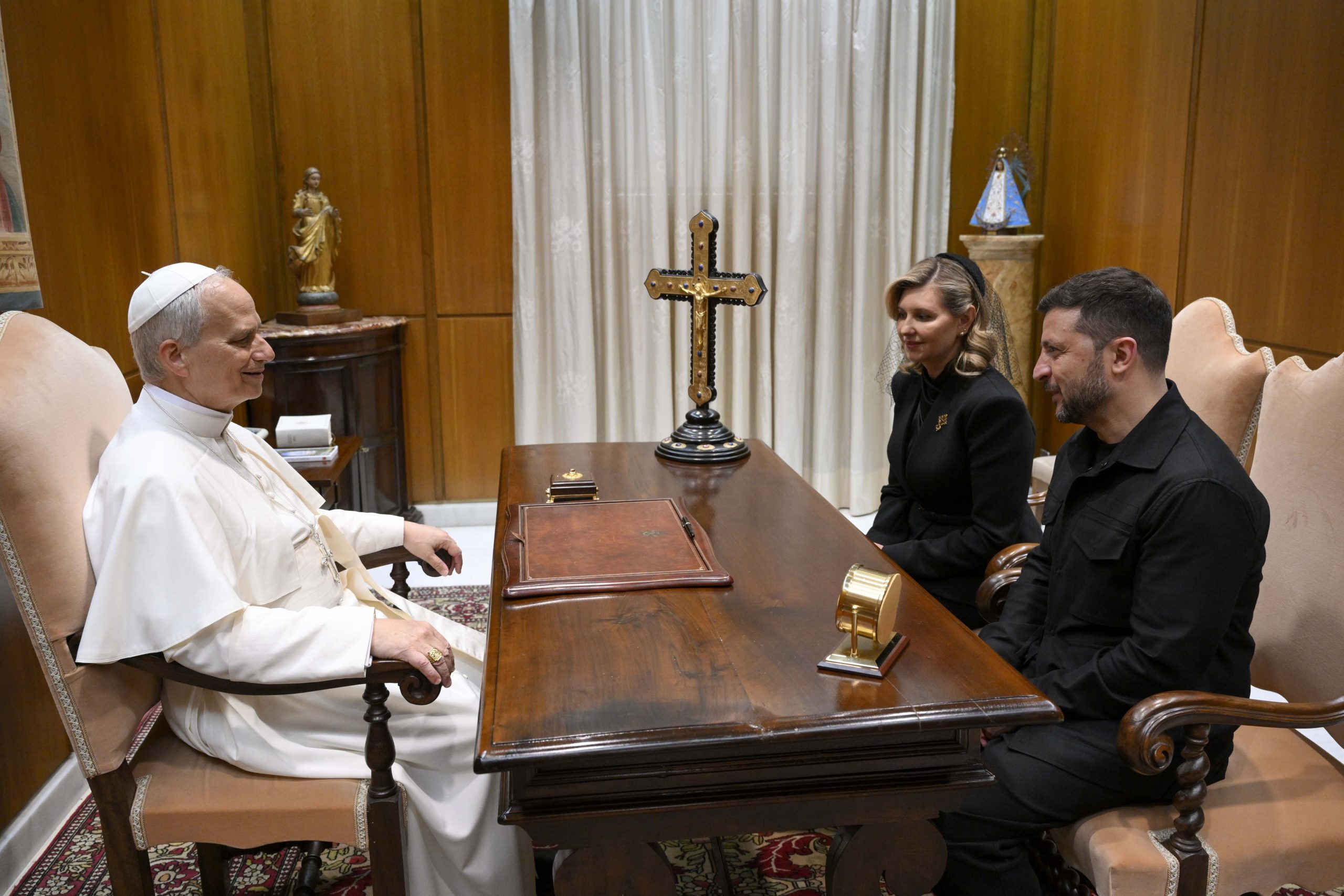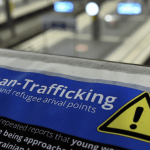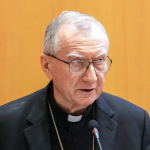TORONTO — Optimism abounds in the early days of Pope Leo XIV’s papacy as it appears he could prove to be an important ally of Ukraine and its pursuit of a peace deal as its war with neighbouring Russia endures.
And after U.S. President Donald Trump’s call with Russian President Vladimir Putin May 19, it appeared the momentum for a peace deal was on the upswing as Trump posted to Truth Social that “the Vatican, as represented by the pope, has stated that it would be very interested in hosting the negotiations.”
As Pope Leo XIV was inaugurated May 18, and in the days before, he met with a number of world leaders, both political and religious.
Archbishop Sviatoslav Shevchuk, the major archbishop of Kyiv-Halych and leader of the Ukrainian Greek Catholic Church, met with the new pontiff on May 15 where the bishop of Rome reaffirmed the call for peace that he communicated during his first Sunday blessing four days before. It was a call he again made at his inaugural Mass May 18.
“I carry in my heart the sufferings of the beloved Ukrainian people,” said Pope Leo XIV on May 11. “Let everything possible be done to achieve genuine, just and lasting peace as soon as possible. May all the prisoners be freed, and may the children return to their families.”
The Catholic Church’s highest-ranking prelate that day offered the Vatican as a staging ground for high-level negotiations between Ukrainian and Russian leadership.
Meanwhile, Shevchuk invited the pope to visit the war-torn nation, following a similar invite from Ukraine’s president, Volodymyr Zelenskyy, after he and the pope spoke following Leo’s election as pope.
Prefaced by confessing that he has no inside knowledge, Father Andrew Onuferko, the vicar general for the Ukrainian Greek Catholic Eparchy of Toronto and Eastern Canada, gets a sense based on what he has read and heard that a pastoral visit to Ukraine is a “priority for the pope.”
Onuferko said he joins Catholics worldwide in appreciating “the broad experience Pope Leo brings to his office.” The Toronto-based cleric cited the 69-year-old Vicar of Christ’s mastery of five languages, his experiences in the Global North and South and the capacity demonstrated in leading the Augustinian Order and the Dicastery for Bishops.
Frank Sysyn, the director of the Peter Jacyk Centre for Ukrainian Historical Research at the University of Alberta in Edmonton, said Pope Leo XIV potentially visiting Ukraine would be “extremely important” to a community of believers.
“The Ukrainian Catholic Church has become international with the arrival of millions of Ukrainian refugees throughout Europe and North America,” said Sysyn. “Its ranks have been much increased. Its activity has been particularly great with the Catholic bishops’ conferences in Canada and the U.S., where there has been fairly firm and consistent support for Ukraine. It looks like the new pope will have a more active role than Pope Francis did.”
While Sysyn, Onuferko and other Ukrainians across Canada wait for the Holy See to officially announce a Pope Leo XIV solemn sojourn to Ukraine, they anticipate the likely visit of Zelenskyy to the G7 Summit in Kananaskis, Alberta, June 15-17.
Prime Minister Mark Carney, who attended Pope Leo XIV’s installation Mass, invited Zelenskyy March 17 to the summit. On April 30, Zelenskyy accepted Carney’s offer. Carney has said Canada will stand firmly behind Ukraine in its fight against the invading Russians, as it has all along, dating back to when Stephen Harper was prime minister and Russia first invaded Crimea in 2014.
Onuferko said the official invite to Zelenskyy is welcome and “certainly a sign that most of the powerful Western countries understand what is going on here,” but expressed his wish that “rhetoric was backed by more substantial action.” He said it ss “not necessarily saying military action, but there is a certain lack of consistency with sanctions and economic isolation.”
Sysyn suggested Ukraine being included at the G7 Summit “shows how different Canadian policy is from American policy on the war and how different European policy is to U.S. policy at the moment.”
Canada was one of the 16 countries — joined by the European Union and NATO — that participated in a 2025 London Summit to establish a “coalition of the willing” on March 2.
The United States, not present at this meeting, has engaged in its own diplomacy to push for peace. Famously, Zelenskyy, U.S. President Donald Trump and U.S. Vice President JD Vance engaged in a contentious meeting in the White House on Feb. 28. On April 26, Trump and Zelenskyy sat for a one-on-one meeting in St. Peter’s Basilica before the funeral of Pope Francis.
On May 15, Russian and Ukrainian representatives engaged in direct talks for the first time since March 29, 2022. A 1,000-for-1,000 prisoner exchange was the only accord reached during the sit-down in Istanbul, Turkey. U.S. Secretary of State Marco Rubio participated in the talks.
Rubio and others took note of the low-level delegation sent by Russia. He surmised that a one-on-one meeting between Trump and Russian Putin would be required to break the apparent “logjam.”




